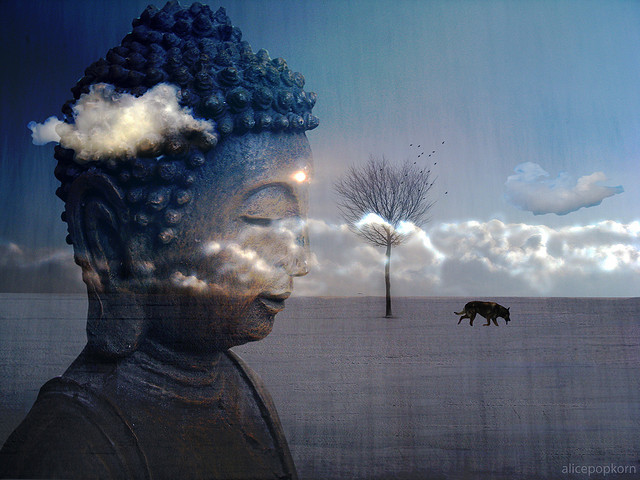The minister betrayed his wife. The scripture misled us. The congregation hurt its people.
Again and again we yearn for spiritual elders we can trust.
I am a child of God who hungers to come home. The human lapses—corrupt priests, cruel beliefs, poorly translated scriptures—might smash my belief like cartoon villains with big hammers.
How do I sort it out? I’m no expert.
The strict voice from my childhood whispers, “Who do you think you are? Others have studied this more than you. How could you question the scriptures? This church or temple or faith has stood the test of time. Who are you to question? You cannot know anything on your own.”
It’s big deal. People have been burned at the stake for this. For more than 1,000 years, most faiths taught that none of us can know the divine directly. All of us, they say, need some kind of spiritual authority to teach us.
We complain that a spiritual leader is corrupt. The voice answers that the leader knows more than we do.
We complain that power-hungry bishops changed the core meaning of scripture. The voice answers that they knew what was best for us.
We complain that a belief cannot be from God because it is so cruel. The voice answers that we are too puny to question traditional belief and that sometimes God’s purification is necessary.
Yet for thousands of years, two important spiritual traditions—Buddhism and Gnosticism—have argued the opposite.
Here’s what Buddha said:
“Believe nothing just because a so-called wise person said it. Believe nothing just because a belief is generally held. Believe nothing just because it is said in ancient books. Believe nothing just because it is said to be of divine origin. Believe nothing just because someone else believes it. Believe only what you yourself test and judge to be true.”
Another important tradition, Gnosticism, is a belief “that direct, personal and absolute knowledge of the authentic truths of existence is accessible to human beings, and, moreover, that the attainment of such knowledge must always constitute the supreme achievement of human life.” In fact, there are some who say that Jesus was a Gnostic.
This means that I give myself permission to be the knower, and I need no approval from a superior. I meditate and listen to whatever direct knowledge comes. I know that my intention is pure. I trust myself and I trust the divine essence.
In many faiths, this idea is dangerous. Many faith organizations control people’s beliefs via spiritual authorities such as ministers, gurus, priests or scriptures. It happens all over the world—in Hinduism, Christianity, Judaism, and Islam, for example.
Furthermore, as children, most of us were taught that even a smart, good person needs teaching from someone who knows better.
It’s actually a trick question. When we yield to a spiritual authority—any authority—what’s really happening is we are giving away responsibility for our spiritual learning to someone else. But we do it because it’s traditional and because it seems easy.
The fatal flaw is that no other person and no piece of writing can carry the weight of our individual spiritual knowing.
Here are six steps to trusting our own spiritual authority:
1. We seek knowing in our own hearts. We take responsibility for who we are at the very deepest level.
Being a true child of the universe means taking 100 percent of the responsibility for what we believe.
2. We can still refer to a faith tradition, if it helps us. Every faith has meditation and prayer practices for self-knowing. Some people call these mystical practices. Another way is to learn practices such as Buddhist meditation in addition to our own usual practices.
3. We can learn more about listening inward. We can meditate and pray more. The universe speaks in that silence.
4. If we want to study scripture, we can study the earliest, most original versions available. For example, Christians can look at the Nag Hammadi versions of the gospel. We can study what changes were made in early versions.
5. We can still talk to our spiritual leader, if we trust him or her. But to be fair, we always remember that he or she is only another person like us, just another ordinary person, not someone to carry the responsibility instead of us. Even if the leader has studied 50 years, we are the final knowers of what feels true in our deepest hearts.
6. Finally, we learn to be cautious of cynics who say, “If you’re intelligent, you don’t need religion” or “I don’t need to believe in anything. My thoughts are all just biochemical reactions anyway.”
Their experience doesn’t matter. We are the only ones who know what our hearts tell us.
The only authority we can completely trust is the pure, quiet voice inside.
So then when the minister hires a prostitute, what does it really matter? If the scripture’s meaning changes, so what? We can learn. We can study a new meaning.
All of us are children of the universe. All of us are love in action.
I stand firm in my own knowledge of the divine. I hear the whispers in my heart, and I trust the universe to teach me perfectly.
Love elephant and want to go steady?
Sign up for our (curated) daily and weekly newsletters!
Editor: Emily Bartran
Photo: Alice Popkorn/Flickr











Read 14 comments and reply